By Harshinder Chadha, Data Scientist at LodgIQ
If you had to spend one day setting prices for the next 365 days, an average hotel would need to make over 9,000 pricing decisions, it is just too many for any human to manage manually, especially in a market that shifts by the hour.
The hospitality industry is entering a new era, one defined not by gut instinct or static reports, but by artificial intelligence that can process massive datasets, predict future demand, and recommend precise pricing strategies in real time. For hotel general managers and revenue managers, the message is clear: operational success and long-term profitability will depend on embracing systems that are built to learn, adapt, and act faster than any human team can.
Why This Change is Happening Now
Hotel pricing has always been complex. High seasons, local events, competitor rates, flight trends, market shifts, all of these factors create a web of variables that influence what a guest is willing to pay at any given moment. Historically, revenue managers relied on past experience and limited tools to make decisions. Today, that is no longer enough.
The growing availability of real-time data, combined with advances in machine learning and AI, makes it possible to analyze thousands of signals at once. This enables more accurate forecasting and more responsive pricing, all at a scale that manual methods simply cannot match.
How we use AI to Improve Hotel Revenue
When we designed our Revenue Management System, we designed it to harness three core AI paradigms: machine learning, deep learning, and reinforcement learning. Each serves a unique function. Machine learning has already shifted the way our customers operate with revenue management. Deep learning and Reinforcement learning will take it to a whole new level.
- Machine learning handles structured data like historical bookings and pricing.
- Deep learning identifies patterns in unstructured sources such as text and event data.
- Reinforcement learning helps adapt and improve with time, using real outcomes to refine future decisions.
The system ingests a wide range of data daily, including reservation activity, competitor pricing, flight data, and event calendars. From there, it builds a context around each hotel, identifying low and high seasons, market fluctuations, and demand spikes. Based on that context, the platform forecasts occupancy and recommends pricing actions to optimize revenue.
For a hotel with five room categories, adjusting pricing five times per day across the next 365 days, this adds up to thousands of decisions that the AI can handle with speed and consistency.

What This Looks Like in Practice
When hotels implement LodgIQ, they often start with what we refer to as a copilot mode. The system provides recommendations while the revenue manager retains control. Over time, many shift to autopilot mode, where the system takes over day-to-day pricing based on defined strategies.
At Refinery Hotel in New York, this approach produced measurable results:
- Double-digit growth in RevPAR
- Over 90 percent annual occupancy
- Increased contribution from direct bookings
These results are driven by automation, but more importantly, by the quality of the underlying data and the algorithms that interpret it.
The Evolving Role of Revenue Management and Commercial Strategy
AI is not about replacing revenue managers. It is about augmenting their ability to focus on strategy instead of spreadsheets, essentially moving the whole industry towards Commercial Strategy. With AI tools in place, a single revenue manager could soon be managing performance across dozens of hotels rather than just one or two.
This shift will not happen overnight, and it is constrained by broader technology adoption within hotels. But the trajectory is clear. In the next five to ten years, the expectations for what a revenue manager can and should accomplish will be dramatically higher.
What General Managers Should Be Thinking About
General managers do not need to become data scientists. But they do need to understand the capabilities of AI-powered tools and support the adoption of systems that can help teams make smarter, faster, and more profitable decisions.
Investing in the right tools today is a move that will pay off in both efficiency and market positioning tomorrow.
Looking Ahead
The hospitality industry is entering a new phase, where revenue will be driven not just by occupancy, but by data precision. Hotels that fail to modernize their revenue strategies risk being overtaken by more agile competitors.
AI is not a future concept. It is already powering decisions at leading hotels around the world. The question is whether your property is ready to put it to work.





